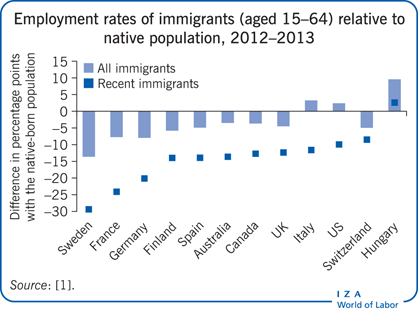Elevator pitch
Immigrants are typically not evenly distributed within host countries; instead they tend to cluster in particular neighborhoods. But does clustering in ethnic enclaves help explain the persistent differences in employment rates and earnings between immigrants and the native population? Empirical studies consistently find that residing in an enclave can increase earnings. While it is still ambiguous whether mainly low-skilled immigrants benefit, or whether employment probabilities are affected, it is clear that effects are driven by enclave “quality” (in terms of income, education, and employment rates) rather than enclave size.
Key findings
Pros
Studies based on refugee dispersal policies indicate that living in enclaves is associated with higher earnings.
Higher earnings are driven principally by enclave quality (rather than enclave size): immigrants benefit financially from high-quality enclaves, as well as in terms of employment opportunities.
There is some evidence that low-skilled immigrants may benefit most from living in enclaves.
Cons
There is no conclusive evidence that the size of an enclave increases employment rates.
Enclaves may reduce the employment chances of highly-skilled immigrants.
Immigrants’ labor market success can be reduced if the ethnic networks in enclaves are of low quality.
Evidence is mixed on the length of time it takes for enclave quality to impact on immigrant earnings.
Reliable evidence is mainly based on policy experiments concerning asylum-seekers, while evidence on economic migrants is rare.
